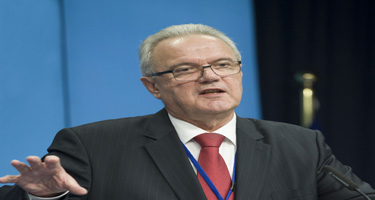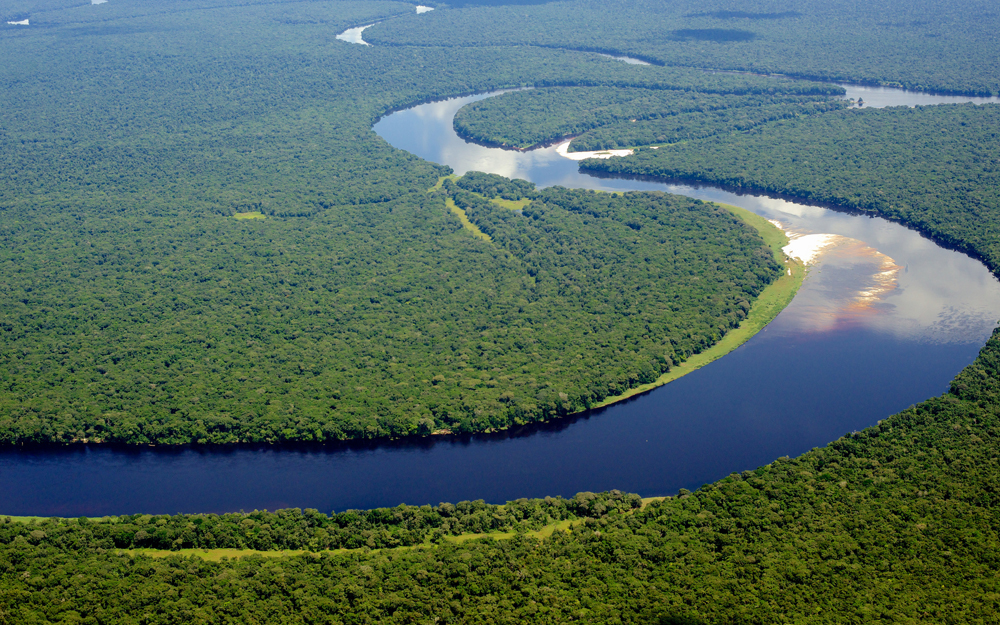
Forests need to be ‘front and centre’ of the UN’s 2030 Agenda for Sustainable Development and the European Consensus on Development – and the EU FLEGT initiative can be one key to marrying forest maintenance and wider sustainability policy. That was the view expressed by European Commissioner for International Cooperation and Development, Neven Mimica, at the Our forests, our future conference in Brussels late April. (Photo left: Neven Mimica)
When it comes to delivering on international sustainability commitments, he said, forests are part of the solution. “They hold the answers to some of today’s global challenges,” he said. “They are key to fighting climate change, home to 80% of our planet’s biodiversity and supply three quarters of our freshwater. They also provide sustenance and jobs to 1.6 billion people. So when we talk about Sustainable Development Goal 15 – Life on Earth – and our target to manage forests sustainably by 2030, we are not just talking about a stand-alone goal. We are also talking about food security, water, climate change and strengthening resilience and peace. Ultimately, we are talking about whether we can build a more sustainable and inclusive world for all.”
The EU, he said, was taking forward this vision in different ways. “Between 2014 and 2020, we committed more than €500 million to support forests in developing countries,” he said, adding that EU policy importantly took into account the different circumstances and approach of each partner country.
“Deforestation and sustainable forest management is a complex challenge, and solutions need to be specific to each country and region. Respect for our partner countries’ sovereignty and decision making is paramount.”
The EU’s Forest Law Enforcement Governance and Trade Action Plan forms a key part of EU international forest strategy, he maintained. “It keeps the focus on national ownership of sustainable forest management and, by strengthening decision-making and institutions at local, national and regional levels, FLEGT has made governance around forests more inclusive, transparent and most importantly, more accountable to local people,” he said. “Fundamentally, it has also made a difference in tackling illegal logging around the world.”
FLEGT, added Mr Mimica, formed a vital element of a wider EU sustainability strategy for forests. In central Africa, for example, besides backing forest governance improvement via FLEGT, it was a ‘longstanding partner in forest conservation and had also facilitated the Congo Basin Forest Partnership in 2015. This is a multi-stakeholder platform that addresses biodiversity conservation, combats illegal wildlife trafficking, encourages private investment and promotes sustainable economic and social development.

The Congo River. Photo Klas Sander, courtesy Danzer
Despite this raft of initiatives, said Mr Mimica, with a further 12 million ha of tropical forest lost in 2018, there was still more to do. The EU will need to dedicate €200-300 million a year ‘to transition to a world where agricultural production does not have a negative impact on forests’. Its proposed Neighbourhood, Development and International Cooperation Instrument (NDICI) would also ‘step up actions in fighting deforestation and promoting sustainable forest management’. Under its External Investment Plan, the EU is also evaluating ‘innovative financing mechanisms’ to encourage private investment for SMEs and smallholder farmers in Africa.
“And we hope to have a €10 million EU Forest Facility established this year to help forest operators develop and promote sustainable forest-based value chains, and propose forest investment projects,” said Mr Mimica. Effective action on forests also ultimately requires international cooperation, he concluded.
“I am proud that the European Union’s combined internal and external actions on forests are already working with the same common objective,” he said. “But this is no time for silos. We need to join forces if we are to deliver on the 2030 Agenda.”
